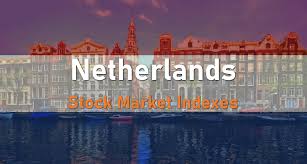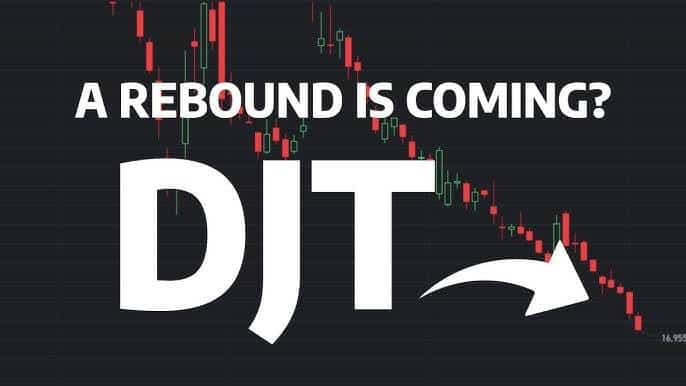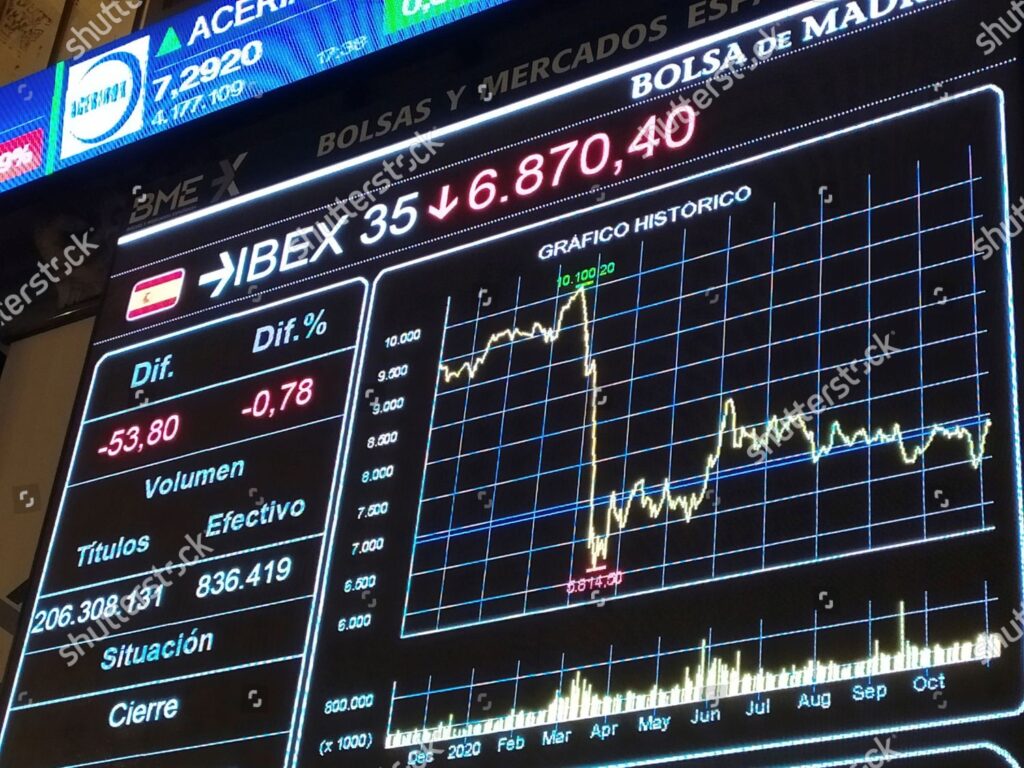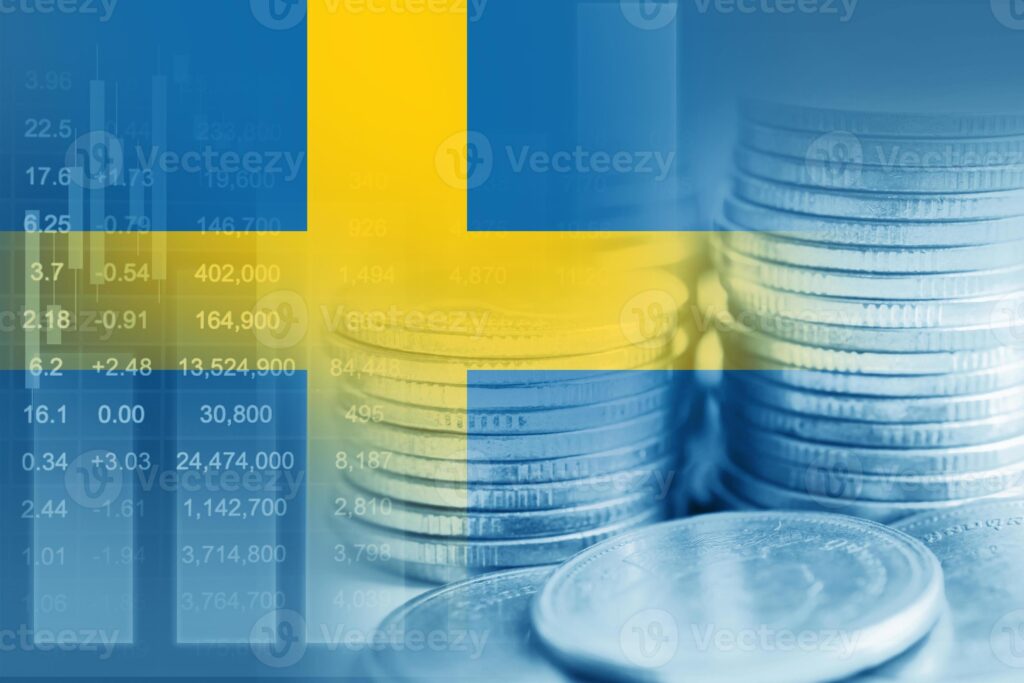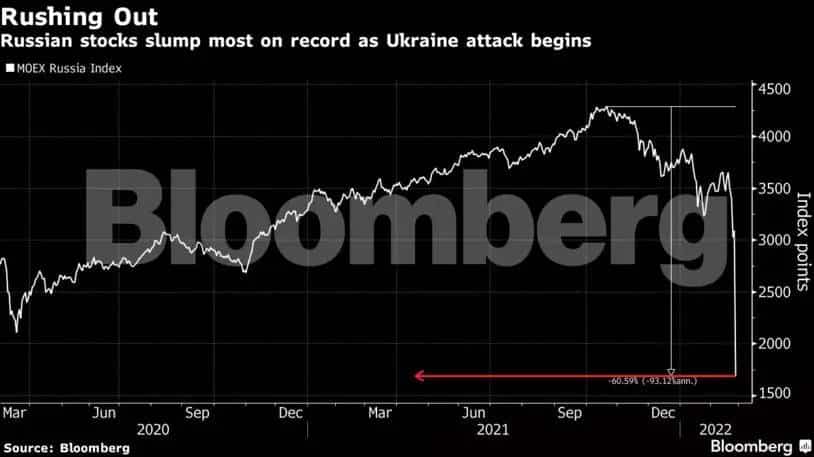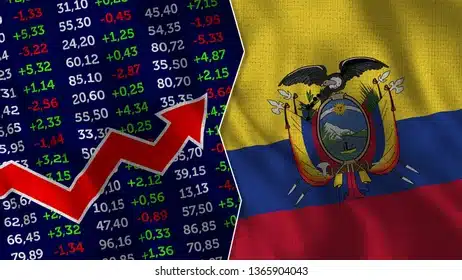Introduction to the stock market in the Netherlands
As an investor, you have likely heard about the Netherlands’ thriving economy and its robust financial sector. The stock market in this European nation has been steadily gaining prominence, offering a wealth of opportunities for those seeking to diversify their portfolios. This comprehensive guide will delve into the intricacies of the Dutch stock market, providing you with valuable insights and practical strategies for successful investing.
The Netherlands is renowned for its open and business-friendly environment, attracting multinational corporations and fostering a culture of innovation. With a highly skilled workforce and a strategic location at the heart of Europe, the country has become a hub for various industries, ranging from technology and finance to agriculture and logistics. This economic diversity is reflected in the Netherlands’ stock market, which encompasses a wide array of companies and sectors.
As you embark on your investment journey in the Netherlands, this guide will serve as your trusted companion, equipping you with the knowledge and tools necessary to navigate the Dutch stock market with confidence. Whether you are a seasoned investor or just starting out, this resource will empower you to make informed decisions and capitalize on the potential of this dynamic financial landscape.
Stock Market in Netherlands + Europe
The Netherlands’ stock market is intrinsically linked to the broader European financial ecosystem. As a member of the European Union (EU), the country adheres to common regulations and standards, facilitating cross-border investments and fostering economic integration. This interconnectedness provides investors with access to a vast array of investment opportunities across various sectors and industries within the EU.
Moreover, the Netherlands’ strategic location at the heart of Europe positions it as a gateway to the continent’s diverse markets. Companies based in the Netherlands often have a strong international presence, serving as a bridge between Europe and the rest of the world. This global reach adds an extra layer of appeal for investors seeking exposure to international markets.
Top 3 list of major stocks in Netherlands
- Royal Dutch Shell PLC (RDS.A): As one of the world’s largest oil and gas companies, Royal Dutch Shell is a household name and a major player in the global energy sector. With its roots in the Netherlands, this multinational corporation is a prominent component of the Dutch stock market and a popular investment choice among local and international investors.
- Unilever N.V. (UN): Unilever is a British-Dutch multinational consumer goods company that produces a wide range of household and personal care products. With a strong presence in the Netherlands, Unilever’s stock is a staple in many Dutch investment portfolios, offering exposure to the ever-growing consumer goods industry.
- ING Groep N.V. (ING): ING Groep is a leading Dutch multinational banking and financial services corporation. As one of the largest banks in the Netherlands, ING’s stock is closely watched by investors seeking exposure to the financial sector and the broader Dutch economy.
History and growth of the stock market in the Netherlands
The history of the Dutch stock market is deeply intertwined with the country’s rich mercantile heritage. Amsterdam, the capital and financial hub of the Netherlands, was home to one of the world’s first stock exchanges, the Amsterdam Stock Exchange, which was established in the early 17th century. This pioneering exchange played a pivotal role in the development of modern financial markets and laid the foundations for the Netherlands’ current stock market.
Over the centuries, the Dutch stock market has evolved and adapted to changing economic landscapes and technological advancements. The advent of electronic trading platforms and the integration of European financial markets have further propelled the growth and accessibility of the Dutch stock market.
Today, the Netherlands boasts a robust and diversified stock market, reflecting the country’s economic strength and its position as a global trading hub. The market has witnessed a steady influx of domestic and international companies seeking to tap into the Dutch investor base and capitalize on the country’s favorable business environment.
[/scUnderstanding the Dutch stock exchange and its key players
The primary stock exchange in the Netherlands is Euronext Amsterdam, which is part of the pan-European exchange operator Euronext. Euronext Amsterdam is a leading market for equity trading, offering access to a wide range of Dutch, European, and international companies across various sectors.
In addition to Euronext Amsterdam, there are several other key players and institutions that shape the Dutch stock market ecosystem:
- Dutch Authority for the Financial Markets (AFM): The AFM is the independent regulatory body responsible for overseeing the Dutch financial markets, including the stock market. It ensures fair and transparent market practices, safeguarding the interests of investors and maintaining market integrity.
- Amsterdam Trading Floor: While electronic trading platforms have largely replaced traditional trading floors, the Amsterdam Trading Floor remains an iconic institution in the Dutch financial landscape. It serves as a hub for financial professionals, hosting events and providing educational resources.
- Investment Firms and Brokers: A diverse array of investment firms and brokers operate in the Netherlands, offering services ranging from stock trading and portfolio management to research and analysis. These intermediaries play a crucial role in facilitating investor access to the Dutch stock market.
Top list of stock index in Netherlands
- AEX Index: The AEX (Amsterdam Exchange Index) is the benchmark stock market index for the Netherlands, tracking the performance of the 25 most actively traded and capitalized companies listed on Euronext Amsterdam. It serves as a barometer for the overall health of the Dutch economy and is closely monitored by investors and market analysts.
- AMX Index: The AMX (Amsterdam Midkap Index) comprises the 25 most actively traded and capitalized companies listed on Euronext Amsterdam, following the AEX Index. This index provides exposure to mid-cap companies, offering diversification opportunities for investors.
- ASCX Index: The ASCX (Amsterdam Small Cap Index) tracks the performance of the 25 most actively traded and capitalized small-cap companies listed on Euronext Amsterdam. This index allows investors to gain exposure to emerging and high-growth companies in the Dutch market.
Benefits and potential of investing in the stock market in the Netherlands
Investing in the Dutch stock market offers a range of benefits and potential opportunities for investors:
- Diversification: The Netherlands’ stock market encompasses a diverse array of sectors, including technology, finance, energy, consumer goods, and more. This diversity allows investors to spread their risk across different industries and mitigate the impact of sector-specific fluctuations.
- Access to Global Markets: Many Dutch companies have a strong international presence, providing investors with indirect exposure to global markets and opportunities. This can be particularly appealing for those seeking to diversify their portfolios beyond their home markets.
- Stable and Business-Friendly Environment: The Netherlands is renowned for its stable political and economic environment, as well as its business-friendly policies. This stability and predictability can provide investors with a sense of confidence and reduce investment risks.
- Robust Regulatory Framework: The Dutch financial markets are governed by a robust regulatory framework overseen by the Dutch Authority for the Financial Markets (AFM). This ensures transparency, fairness, and investor protection, fostering trust and confidence in the market.
- Potential for Growth: With its strategic location, highly skilled workforce, and innovative spirit, the Netherlands offers promising growth opportunities across various sectors. Investing in the Dutch stock market allows you to participate in the country’s economic growth and capitalize on the potential of emerging industries.
How to invest in the Netherlands stock market – a step-by-step guide
Investing in the Dutch stock market can be a rewarding endeavor, but it requires careful planning and adherence to a well-defined strategy. Here’s a step-by-step guide to help you navigate the process:
- Open a Brokerage Account: The first step is to open a brokerage account with a reputable investment firm or online broker that offers access to the Dutch stock market. Many international brokers provide trading platforms that allow you to buy and sell shares on Euronext Amsterdam and other European exchanges.
- Conduct Research: Before investing, it’s crucial to conduct thorough research on the companies and sectors you’re interested in. Analyze financial statements, market trends, and industry developments to identify potential investment opportunities that align with your investment goals and risk tolerance.
- Develop an Investment Strategy: Determine your investment objectives, risk appetite, and time horizon. Based on these factors, develop an investment strategy that outlines your asset allocation, diversification approach, and investment style (e.g., growth, value, income).
- Place Your Orders: Once you’ve identified the stocks or exchange-traded funds (ETFs) you want to invest in, place your buy orders through your brokerage account. Be mindful of trading hours, as the Dutch stock market operates during European trading hours.
- Monitor Your Investments: Regularly monitor your investments and stay informed about market developments, company news, and regulatory changes that may impact your portfolio. Adjust your strategy as needed to align with your investment goals and risk tolerance.
- Consider Seeking Professional Advice: If you’re new to investing or have a significant amount of capital to invest, consider seeking guidance from a professional financial advisor. They can provide personalized advice and help you navigate the complexities of the Dutch stock market.
Key factors to consider before investing in the Netherlands stock market
Before diving into the Dutch stock market, it’s essential to consider several key factors that can influence your investment decisions and overall success:
- Currency Fluctuations: As an international investor, you’ll need to be mindful of currency fluctuations between your home currency and the Euro, which is the official currency of the Netherlands. Currency movements can impact the value of your investments and potential returns.
- Tax Implications: Understand the tax implications of investing in the Dutch stock market, both in the Netherlands and your home country. Tax regulations can vary, and it’s crucial to seek professional advice to ensure compliance and optimize your tax strategy.
- Political and Economic Stability: While the Netherlands is known for its political and economic stability, it’s essential to stay informed about any potential changes or developments that could impact the market. Monitor news and analysis from reputable sources to make informed investment decisions.
- Sector and Industry Dynamics: The Netherlands has a diverse economy with strengths in various sectors, such as technology, finance, energy, and consumer goods. Analyze the performance and growth prospects of different industries to identify potential investment opportunities that align with your goals and risk tolerance.
- Liquidity and Trading Volume: Consider the liquidity and trading volume of the stocks or ETFs you’re interested in. Higher liquidity generally means easier entry and exit points, while lower liquidity can lead to wider bid-ask spreads and potentially higher transaction costs.
Types of investment options available in the Netherlands stock market
The Dutch stock market offers a variety of investment options to cater to different investment goals and risk profiles:
- Individual Stocks: You can invest directly in the shares of companies listed on Euronext Amsterdam or other European exchanges. This option provides the opportunity to actively manage your portfolio and potentially benefit from the growth of specific companies.
- Exchange-Traded Funds (ETFs): ETFs are investment funds that track a specific index, sector, or asset class. They offer diversification and exposure to a basket of securities, making them a popular choice for investors seeking broad market exposure or sector-specific investments.
- Mutual Funds: Similar to ETFs, mutual funds are professionally managed investment vehicles that pool money from multiple investors and invest in a diversified portfolio of stocks, bonds, or other securities. They can provide access to a wide range of investment opportunities and professional management.
- Derivatives: For more experienced and risk-tolerant investors, the Dutch stock market offers trading in derivatives such as options and futures. These financial instruments can be used for hedging or speculative purposes, but they carry higher risks and require a thorough understanding of their mechanics.
- Real Estate Investment Trusts (REITs): REITs are companies that own and operate income-generating real estate properties. Investing in Dutch REITs can provide exposure to the country’s real estate market and potentially generate income through dividends.
Risks and challenges associated with investing in the Netherlands stock market
While investing in the Dutch stock market offers numerous opportunities, it’s crucial to be aware of the potential risks and challenges that may arise:
- Market Volatility: Like any stock market, the Dutch market is subject to volatility driven by various factors, such as economic conditions, geopolitical events, and investor sentiment. This volatility can lead to fluctuations in stock prices and potentially impact your investment returns.
- Currency Risk: As an international investor, you may be exposed to currency risk due to fluctuations in exchange rates between your home currency and the Euro. These fluctuations can affect the value of your investments and returns when converted back to your home currency.
- Liquidity Risk: Some stocks or ETFs listed on the Dutch market may have lower trading volumes, which can result in wider bid-ask spreads and potentially higher transaction costs. This liquidity risk can make it more challenging to enter or exit positions at desired prices.
- Regulatory and Legal Risks: As an international investor, you’ll need to navigate the regulatory and legal frameworks of both the Netherlands and your home country. Changes in regulations, tax laws, or reporting requirements can impact your investment strategy and returns.
- Geopolitical and Economic Risks: The Dutch economy and stock market are influenced by global economic conditions and geopolitical events. Factors such as trade tensions, political instability, or economic downturns can negatively impact the performance of the Dutch stock market and your investments.
To mitigate these risks, it’s essential to diversify your portfolio, conduct thorough research, and regularly monitor market developments. Additionally, seeking professional advice from financial advisors or investment professionals can help you navigate the complexities of the Dutch stock market and make informed investment decisions.
Tips for successful investing in the Netherlands stock market
To maximize your chances of success when investing in the Dutch stock market, consider the following tips:
- Develop a Long-Term Perspective: Investing in the stock market should be approached with a long-term mindset. Focus on building a diversified portfolio aligned with your investment goals and risk tolerance, rather than chasing short-term gains.
- Stay Informed and Educated: Stay up-to-date with market news, company announcements, and economic developments that may impact the Dutch stock market. Continuously educate yourself on investment strategies, risk management techniques, and industry trends.
- Diversify Your Portfolio: Diversification is a key principle of successful investing. Consider spreading your investments across different sectors, industries, and asset classes to mitigate risk and reduce the impact of market fluctuations on your overall portfolio.
- Utilize Professional Advice: If you’re new to investing or have a significant amount of capital to invest, consider seeking guidance from a professional financial advisor or investment manager. Their expertise can help you navigate the complexities of the Dutch stock market and develop a tailored investment strategy.
- Implement a Disciplined Approach: Develop and adhere to a disciplined investment approach based on your risk tolerance, investment goals, and market analysis. Avoid emotional decision-making and stick to your predetermined strategy, making adjustments only when necessary.
- Monitor and Rebalance Your Portfolio: Regularly review and rebalance your portfolio to ensure it remains aligned with your investment objectives and risk tolerance. This may involve selling underperforming assets and reinvesting in more promising opportunities.
- Consider Cost-Effective Investment Options: Explore cost-effective investment options, such as low-cost index funds or ETFs, to minimize expenses and maximize potential returns over the long term.
By following these tips and maintaining a disciplined approach, you can increase your chances of achieving your investment goals and capitalizing on the potential of the Dutch stock market.
Resources and tools for tracking and analyzing the Netherlands stock market
To stay informed and make data-driven investment decisions, it’s essential to leverage reliable resources and tools for tracking and analyzing the Dutch stock market:
- Financial News Websites and Publications: Stay up-to-date with the latest market news, company announcements, and economic developments by following reputable financial news websites and publications. Some popular sources include Bloomberg, Reuters, and the Financial Times.
- Stock Screeners and Research Platforms: Utilize stock screeners and research platforms to filter and analyze stocks based on various criteria, such as market capitalization, price-to-earnings ratio, dividend yield, and more. Popular platforms include Yahoo Finance, Google Finance, and Morningstar.
- Company Websites and Financial Reports: Visit the websites of companies you’re interested in investing in and review their financial reports, investor presentations, and other relevant information. This can provide valuable insights into their business operations, financial performance, and growth prospects.
- Investment Blogs and Forums: Engage with the investment community by following reputable investment blogs and participating in online forums. These platforms can offer valuable insights, analysis, and discussions on the Dutch stock market and specific investment opportunities.
- Mobile Trading Apps: Many brokers and investment platforms offer mobile trading apps that allow you to monitor your portfolio, place trades, and access market data on the go. These apps can be particularly useful for staying informed and making timely investment decisions.
- Portfolio Management Software: Consider using portfolio management software or online tools to track your investments, analyze performance, and generate reports. These tools can help you stay organized and make data-driven decisions about your portfolio.
- Economic and Market Data Providers: Subscribe to economic and market data providers, such as Bloomberg, Refinitiv, or FactSet, for access to comprehensive financial data, market analysis, and research reports on the Dutch stock market and broader global markets.
By leveraging these resources and tools, you can stay informed, conduct thorough research, and make data-driven investment decisions in the Dutch stock market.
final thoughts on the potential of the stock market in the Netherlands
The Dutch stock market offers a wealth of opportunities for investors seeking diversification and exposure to a thriving European economy. With its robust regulatory framework, stable political and economic environment, and diverse range of investment options, the Netherlands provides a favorable landscape for both domestic and international investors.
As you navigate the Dutch stock market, remember to approach it with a long-term perspective, conduct thorough research, and seek professional guidance when necessary. Embrace diversification as a key principle, and stay informed about market developments, company news, and economic indicators that may impact your investments.
The potential of the Dutch stock market lies not only in its well-established industries but also in its ability to foster innovation and adapt to emerging trends. The country’s commitment to sustainability, technology, and renewable energy presents exciting opportunities for forward-thinking investors.
By leveraging the resources and tools available, you can make informed decisions and capitalize on the growth prospects of the Dutch market. Whether you choose to invest in individual stocks, ETFs, mutual funds, or other investment vehicles, the Netherlands offers a diverse range of options to align with your investment goals and risk tolerance.
As the global economy continues to evolve, the Netherlands’ strategic location and strong international ties position it as a gateway to European and global markets. Investing in the Dutch stock market can provide you with exposure to multinational corporations and industries that transcend national borders, further enhancing the diversification potential of your portfolio.
Ultimately, successful investing in the Dutch stock market requires a disciplined approach, a willingness to learn and adapt, and a commitment to staying informed. By embracing these principles and leveraging the insights and strategies outlined in this comprehensive guide, you can navigate the Dutch financial landscape with confidence and seize the opportunities it presents.
Ready to embark on your investment journey in the Netherlands? Visit [BrokerName](https://www.example.com) today and open an account to gain access to the Dutch stock market. Our team of experienced professionals is here to guide you every step of the way, providing personalized advice and support to help you achieve your financial goals. Don’t miss out on the potential of the Dutch market – start investing with us today!

